Yes, a firmer mattress can help with joint pain by providing better support and alignment. It distributes your body weight evenly, which reduces pressure on sensitive areas like hips, knees, and shoulders.
Joint pain affects millions of people worldwide. Whether it's from arthritis, a past injury, or the natural wear and tear of aging, joint pain can make everyday activities feel challenging. If you're one of the many people struggling with joint discomfort, you may wonder if switching to a firm mattress could help ease your pain.
Studies from The Lancet Rheumatology show that about 15% of the global population is experiencing some form of arthritis and joint pain, with the most common type being osteoarthritis, which can lead to pain and stiffness in the joints. The right mattress can significantly affect your overall comfort, particularly if you experience joint pain. Let's look at how a firmer mattress can help and if it's your best choice.
Understanding Joint Pain
Joint pain is common and can cause various conditions, including inflammation, injuries, and arthritis. It's often more noticeable when pressure is placed on the joint, such as during sleep when your body weight rests on your mattress. Poor sleep can also worsen joint pain, creating a cycle of discomfort.
People suffering from joint pain often have trouble finding the right mattress because too much softness can create pressure on sensitive joints, while too much firmness can feel uncomfortable. The key is finding the right balance between support and cushioning. When choosing a mattress, it's important to consider how it impacts pressure points for sleep, as these areas can directly affect joint pain at night. The wrong mattress might worsen discomfort by applying excessive pressure to your hips, knees, or shoulders, especially if you are a side sleeper.
How Mattress Firmness Affects Joint Health
The firmness of your mattress has an important role in how your body aligns during sleep. A mattress that's too soft may cause your body to sink too deeply, leading to poor spinal alignment and exacerbating joint pain. On the other hand, a mattress that's too firm may not allow enough contouring for the body, causing pressure points on sensitive areas like your hips, knees, and shoulders.
Restless sleep can happen if your mattress doesn't give enough support, making you feel uncomfortable during the night. When you're having restless sleep, your body can't fully relax, so you might wake up often or toss and turn. A firmer mattress helps keep your body stable, making it easier to sleep better and reducing how often you wake up from discomfort.
Benefits of a Firm Mattress for Joint Pain
Here's how a firm mattress can help with joint pain:
Support for Spinal Alignment
A firm mattress helps maintain proper alignment of your spine and properly align while you sleep. When your spine is well-supported, it reduces the strain on your joints, especially in your lower back and hips. This can help alleviate pain that might otherwise worsen from poor alignment.
Prevention of Mattress Sagging

Over time, softer mattresses may sag in the middle, creating an uneven surface. This can worsen joint pain, especially for heavier individuals. A firm mattress helps prevent sagging, ensuring your body has support throughout the night.
Reduced Pressure on Sensitive Areas
With a firmer mattress, your body won't sink too deeply into the surface, which helps prevent extra pressure on sensitive joints. This can be helpful for people with hip or shoulder pain, as it helps maintain a healthy body posture without adding strain. Along with the benefits of a firm mattress, incorporating relaxation techniques such as deep breathing or stretching can further ease muscle tension and enhance comfort before sleep, supporting a more restful night.
Better for Heavier Sleepers
A firm mattress might be a better option for joint pain relief if you're a heavier individual. Softer mattresses may not provide enough support for those with more body weight, causing the body to sink deeper and leading to additional discomfort. A firm mattress gives more resistance, which helps distribute weight evenly across your body.
Potential Disadvantages of a Firm Mattress for Joint Pain
While a firm mattress can be beneficial for many, there are some situations where it may not be the best option, especially for lighter sleepers:
Pressure on Shoulders and Hips
A firm mattress provides less cushioning compared to softer mattresses. This can put more pressure on your shoulders and hips, where side sleepers often experience pain. If you don't have enough cushioning, it could worsen your discomfort instead of relieving it.
Limited Contouring
Firm mattresses generally offer less contouring, which can be an issue for those who need extra support for their body's curves. If you're used to a softer mattress that molds to your body, a firm mattress may feel too rigid, leading to discomfort in certain areas.
Not Ideal for Lighter Sleepers
Lighter individuals might find a firm mattress uncomfortable because it doesn't provide enough cushioning. You may not experience the same level of comfort or pain relief without proper contouring. A medium-firm or soft mattress may be a better choice in these cases.
Choosing the Right Mattress for Joint Pain
One popular choice is the hybrid mattress, which combines the support of innerspring coils with the comfort of memory foam or latex. This hybrid design allows for the firm support needed for spinal alignment and the pressure-relieving comfort that can help alleviate joint pain.
If you have joint pain and are looking for a firm mattress for sale, here's what you should consider:
Your Body Weight
Heavier individuals need firmer mattresses to prevent sinking, while lighter sleepers might find a medium-firm mattress more comfortable. Choose a mattress that suits your weight and provides enough support without being too hard or too soft.
Sleeping Position

Side sleepers may need a mattress that relieves extra pressure on the shoulders and hips, while back and stomach sleepers generally require firmer mattresses to support spinal alignment.
Pressure-Relieving Features
Look for mattresses with pressure-relieving materials like memory foam or latex. These materials can provide the cushioning needed to alleviate joint pain while still offering the support of a firm mattress.
What Experts Say About Mattress Firmness and Joint Pain
Experts agree that the best mattress for joint pain will depend on a person's preferences and needs. However, many professionals recommend a medium-firm mattress, especially for people with back and joint pain. The American Chiropractic Association suggests that a firmer mattress can help support the spine's natural curve and reduce stress on the body's joints. However, some contouring should still be allowed to relieve pressure.
Final Thoughts
Choosing the right mattress can have a difference in managing joint pain. Can a firmer mattress help joint pain? Many people, especially those with arthritis or chronic joint pain, find that a firm mattress offers better spinal support, reduces sagging, and prevents pressure on sensitive joints. However, finding the best balance for your body and sleep style is essential. Remember, the best firm mattress might only be suitable for some, so test different options before making your final decision.Frequently Asked Questions
Can a firm mattress help reduce back pain?
Yes, a firm mattress can provide the support needed for spinal alignment, which can help reduce back pain.
What is the best mattress firmness for joint pain relief?
A firm mattress helps maintain proper alignment of your spine, providing proper support without causing extra pressure on sensitive areas.
Is a memory foam mattress good for joint pain?
Memory foam mattresses are great for joint pain. They contour to your body and provide pressure relief while still offering support.
How do I know if I need a firmer mattress?
A firmer mattress may be beneficial if you wake up with joint pain or feel like your mattress sags in certain areas.
Can a firm mattress be uncomfortable for side sleepers?
Yes, side sleepers may find a firm mattress uncomfortable unless it offers extra cushioning in pressure areas like the shoulders and hips.




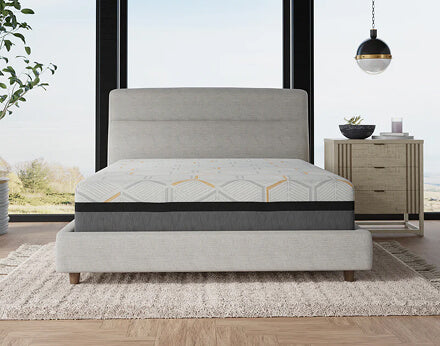


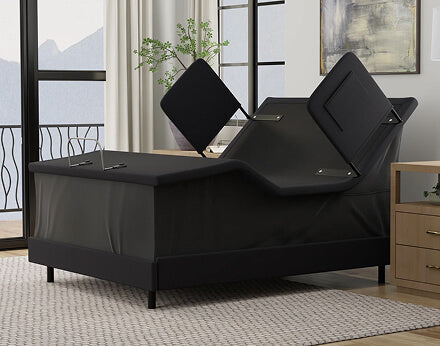



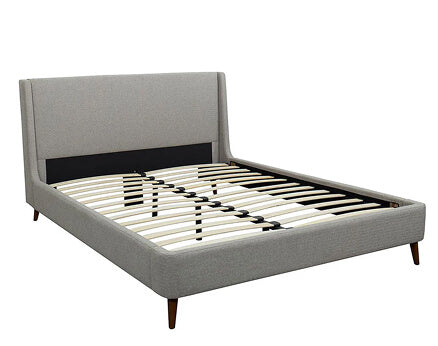
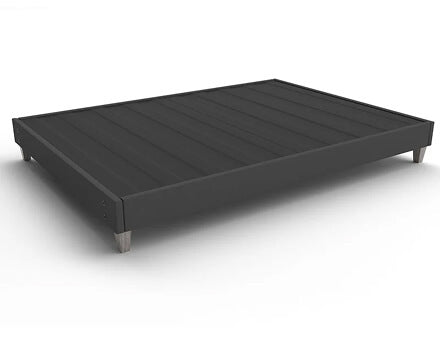
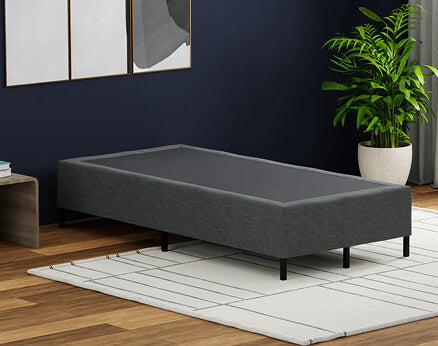

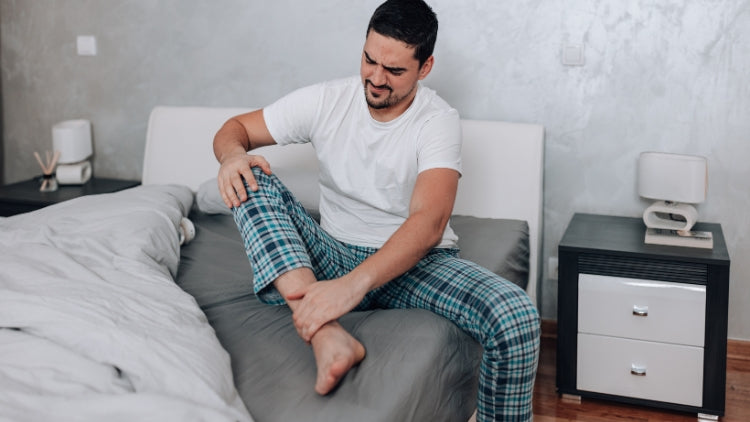
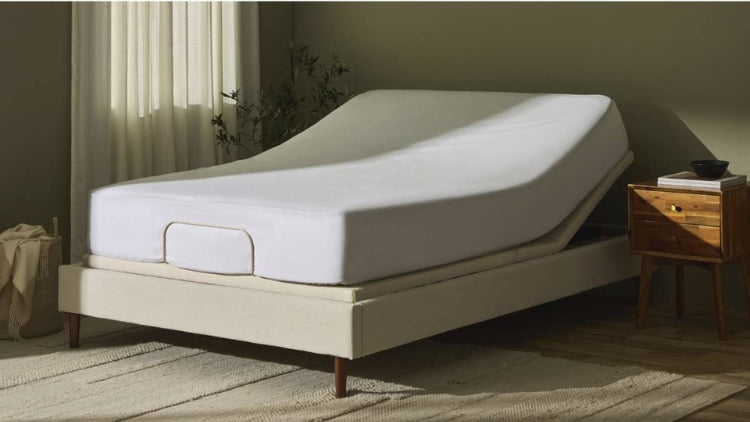
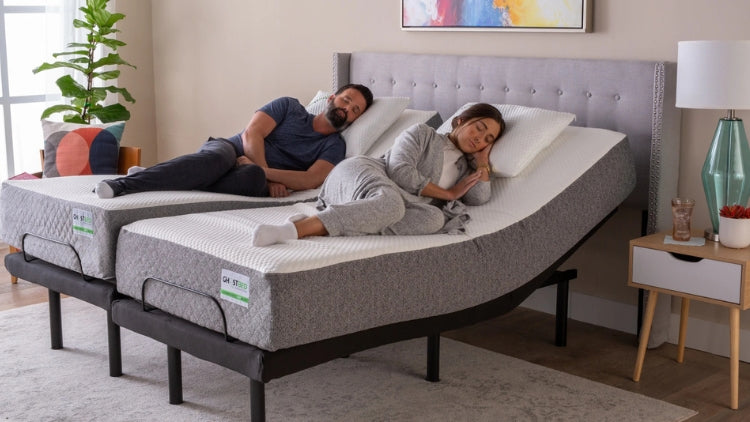
Leave a comment
This site is protected by hCaptcha and the hCaptcha Privacy Policy and Terms of Service apply.